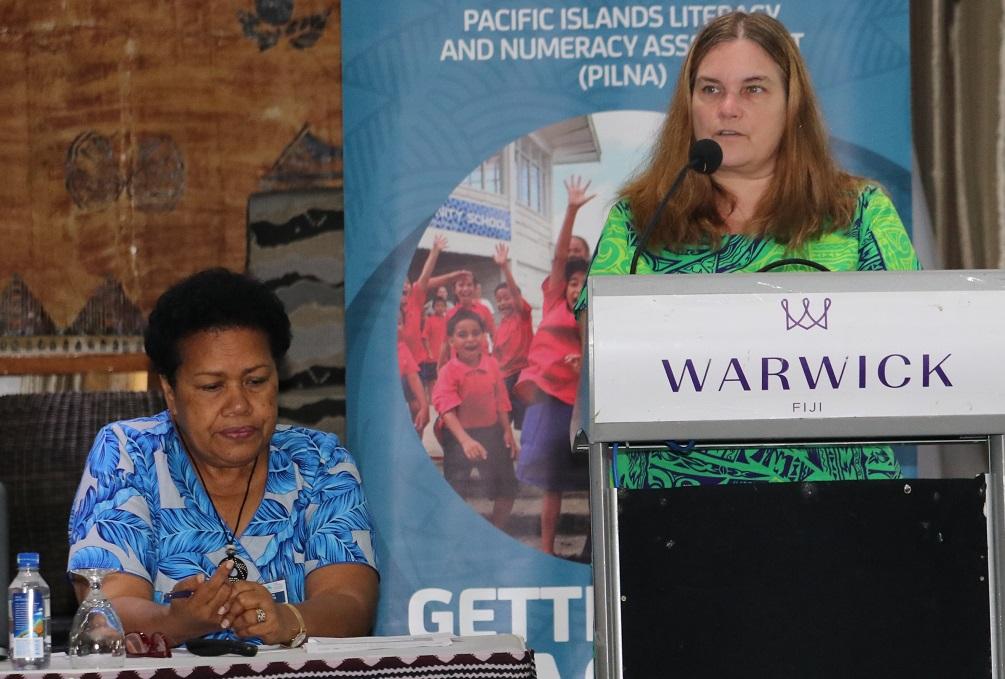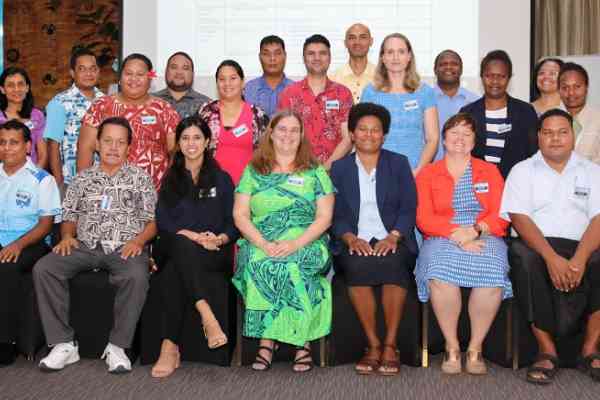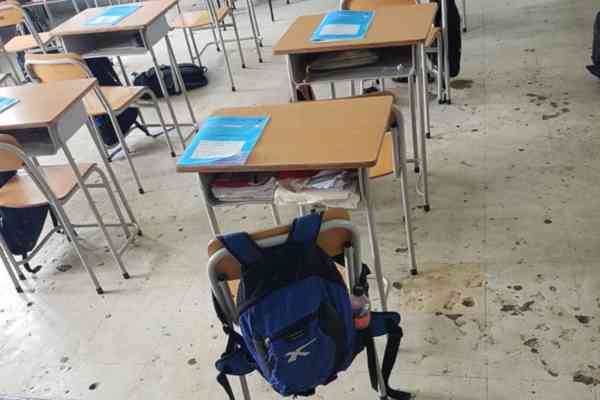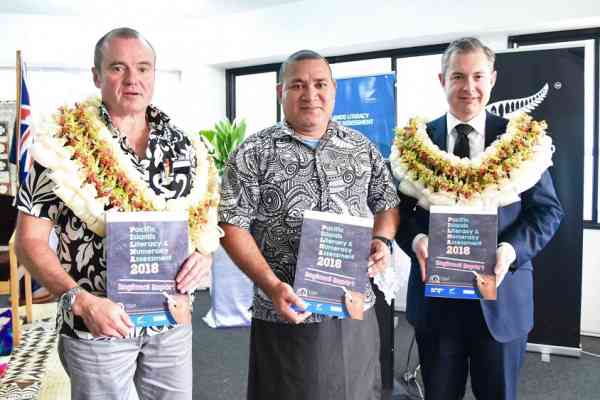Pour la première fois, le Programme chargé de l’Évaluation régionale des aptitudes à la lecture, à l’écriture et au calcul (PILNA) a recueilli des données contextuelles exhaustives auprès des participants. En plus des performances et des données cognitives, l’évaluation 2018 rend compte de facteurs comme l’attitude des élèves et les ressources dont ils disposent chez eux en matière d’apprentissage, l’implication des parents et les qualifications des enseignants.
(article disponible en anglais uniquement)
Contextual data of PILNA 2018 throws new light on Pacific education
The contextual data of the Pacific Islands Literacy and Numeracy Assessment (PILNA) 2018 was cause for excitement for education representatives at a workshop on PILNA 2018 data earlier this month.
PILNA 2018 contextual data captures factors like students’ learning attitudes and home resources, parental engagement and teacher qualification. The PILNA 2018 cycle was the first time for the Educational Quality and Assessment Programme (EQAP) of the Pacific Community to gather comprehensive contextual data from participating students and teachers. The previous two PILNA cycles only measured performance, or cognitive data.
One of the workshop participants, Stanley Heine, said the contextual data has forced him to reconsider other aspects that affect student performance. Heine, who is the associate commissioner of the Republic of the Marshall Islands’ Ministry of Education, said, he only focussed on the cognitive data of their PILNA 2018 country report, until the workshop equipped them on how to extract the data.
“Contextual data now really … broadens my thinking on what we can do to improve instruction,” said Mr Heine. “After this workshop, we will really go into that contextual data.”
Workshop participants were given analytical tools that help to investigate the cognitive and contextual data of the PILNA 2018 results. Partici were also supported on how to use the raw PILNA data and their respective national data to evaluate areas of interest.
PILNA is the only large-scale education assessment conducted in the Pacific region. EQAP, with the technical support of the Australian Council for Educational Research (ACER), conducts the assessment. The assessment’s contextual data represents one of several milestones for PILNA 2018.
...we have somewhere close to 7 million data points from the instruments and several thousand more that have been calculated as a result of the analysis of the results.
“(PILNA 2018 was also) the first time that we have been able to link all the data elements – literacy with numeracy, and cognitive data with teacher, student and school leader survey responses,” noted EQAP’s director Dr Michelle Belisle. “The magnitude and richness of the dataset that has been compiled is really quite overwhelming when you stop to think about it: 40,000 students, almost 1000 schools, and over 2000 teachers. Looking at the data points available across all of these groups, we have somewhere close to 7 million data points from the instruments and several thousand more that have been calculated as a result of the analysis of the results.” She made the comments in her opening remarks at the workshop.
Read Dr Belisle’s full opening address at the PILNA Data workshop
The weeklong workshop offered country representatives an opportunity to explore the raw PILNA data of their respective countries to improve their understanding of the results beyond the key themes noted in their country reports and the PILNA 2018 Regional Report.
Vanuatu’s principal education officer Norah Wells said the statistical analysis conducted during the workshop was intense and had equipped them to be more skilled in extrapolating data.
“I am excited because I now know what (we) can do with the data,” said Ms Wells. “This (PILNA 2018) data is what we have been longing for; (this) is more than just a PILNA report at the national level.”
She was referring to the ability to investigate results at the different levels and sub-groups within Vanuatu, especially at the provincial level.
Similar sentiments were expressed by the principal standards monitoring officer, Silas Kompeo, of Papua New Guinea’s Department of Education.
He said the PILNA analysis tools allowed one to hone into important details that would be helpful to finding solutions or strategies to address areas of poor performance.
Australia’s Department of Foreign Affairs and Trade (DFAT) counsellor for development cooperation Rochelle White also commented on the richness of the PILNA 2018 data. She said the data would help the 15 countries and their partners to focus their intervention efforts in education in the areas of numeracy and literacy. Ms White noted that the contextual findings provided new insight into areas where donor partners could potentially be of assistance.
The data also “has huge potential to be applied to a whole range of other areas that all these nations are trying to continually improve,” said Ms White.
Fiji’s representative Ravinesh Prasad, said the workshop had given him a new appreciation for contextual data because of the added clarity it offers.
“Not only is this useful for our reporting, but it is useful to clear any doubt (from the cognitive data),” said Mr Prasad, a systems analyst with Fiji’s Ministry of Education. “I now have a new skill set which will be very, very important.”
He emphasised that PILNA data provided a thorough overview, and directed their attention to aspects of literacy and numeracy learning that would require further investigation.



